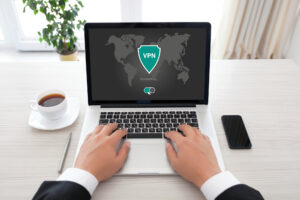The term VPN (Virtual Private Network) has been thrown around a lot in recent years, some might say even abused.
What was once a Microsoft PPTP network security protocol in the 90s reserved for backroom technicians only, has turned into a commercial tool advertised practically everywhere and downloadable by anyone for almost any system. Why? Simply because a VPN is so versatile and the fact that one click can anonymize and encrypt your internet connection in two seconds. Furthermore, in a time when more and more people are afraid of cyber threats and privacy intrusions stemming from the internet, VPNs come quite handy, to say the least. Others, meanwhile, use the software to unblock or un-censor their internet environment. There are even more uses for VPNs, such as saving money on online shopping and doing local research remotely which would otherwise be impossible without VPN servers. However, sometimes you need more than a VPN alone. For those of us who look at privacy and security in a different light than just a commercial gimmick (those of us that seriously value our security and privacy), sometimes you can supplement a VPN with something like a premium antivirus function. This makes for the cherry on top and results in you having yourself the ultimate weapon in your hands. This is also the perfect way to future-proof your devices as threats and privacy intrusions become more cutting-edge and dangerous than ever.
What is a VPN?
A VPN, as we noted before, is network security software that stems from 1990s Microsoft PPTP (Point-to-Point Tunneling) technology. Back then, the purpose of this tunnel was to shroud an internet connection in protection from one end to the other. This would ward off cyber attacks and any interception of the connection. Technology has now advanced quite a bit in terms of encryption ability and the fact that we can install apps that do everything for us (configure themselves) nowadays is a sign that technology is convenient and accessible to anyone nowadays.
Technically speaking, once you connect to a VPN server your internet protocol address changes to reflect that of the country you choose from a proprietary server list. High-grade VPNs always offer a ton of locations to connect to. Once connected, the rest of the internet cannot tell the difference. For instance, if you choose a server in Mumbai, India you will be given Google’s India homepage (this is where the marketing benefits come in). This is because Google (and any other website) will see your VPN’s Indian internet protocol address. Other than that, a VPN encrypts your internet connection (usually 256-bit encryption) which means anybody that is trying to intercept your connection (checking the pages you are visiting) will be met with a list of random characters.
Some examples of modern-day premium grade VPNs are;
NordVPN
ExpressVPN
Cyberghost
Mullvad
ProtonVPN
PIA
What is an Antivirus?
If you thought VPNs were popular, you probably know that there is nobody ever that has used a computer and does not know what an antivirus program is. Other than the fact that the name of the software itself is self-explanatory (it fights and defends against viruses, hence the ‘anti’), antivirus technology has been around since the first computers with an operating system. Viruses are a staple in popular culture themselves and have been the subject of many movies. Not only that, but malware (malicious software) like viruses has caused hundreds of millions of dollars in damage to our connected economy and continues to do so each day.
Antivirus programs today usually come in suites. A decade ago, it was common practice to simply download an executable file and download the antivirus itself. However, we now live in the ‘app’ age. Premium antivirus suites, today, usually give you multiple features, such as the ability to continually check for suspicious internet traffic and any flagged files you’ve downloaded. You might also find other features bundled in there. The software can then quarantine or resolve the infections, or do several other things that you did not think of.
What is Antivirus + VPN?
Now, imagine combining the best and most versatile anonymization and encryption technology with an antivirus suite that can swat any infections found in your computer and intercept malicious internet traffic. You have got yourself a pretty sweet deal there, and that is exactly what antivirus + VPN combos are.
Most people do not realize that a VPN cannot control malicious files and intercept suspicious traffic when browsing online. Yes, a VPN can shroud you from hackers and anonymize your physical location (and even throw off persistent ads and online profiling), but if you have an infection that means you have downloaded something suspicious via a cybercriminal link. It could also mean you visited a malicious website.
Today, you can build a Great Wall of defense with antivirus software with an in-built VPN. In 2022, you have quite a few options such as;
Norton 360
Bitdefender Total Security
McAfee Total Protection
Avira Prime
Kaspersky Security Cloud
With the ‘suite’ approach to programs becoming ever more popular (and easier to develop and sell) it is no surprise that antivirus programs with an in-built VPN have appeared on the horizon. What is more, these programs are compatible with most devices and can be shared across multiple devices with a premium subscription ranging from about 30 to 40 dollars a year which is a paltry price to pay to protect your devices and your valuable data (not to mention your family’s devices and data too).
Why do you need an antivirus program with a built-in VPN? Given the dangerous internet environment we find ourselves in today, and the number of sneaky scams out there that have trended vertically since Covid-19, you cannot go wrong with additional protection. Remember you want to look for an antivirus+VPN combo that gives you; protection against viruses, great VPN performance, a good price, and good usability meaning a solid user experience and customer support to boot.
Read more:
Antivirus With Built-in VPN
















